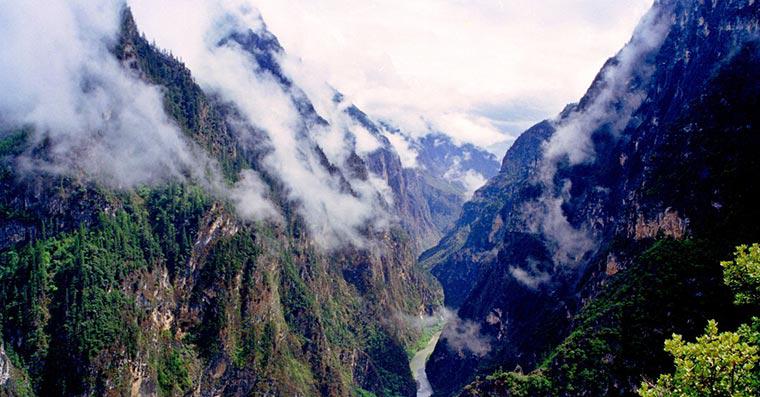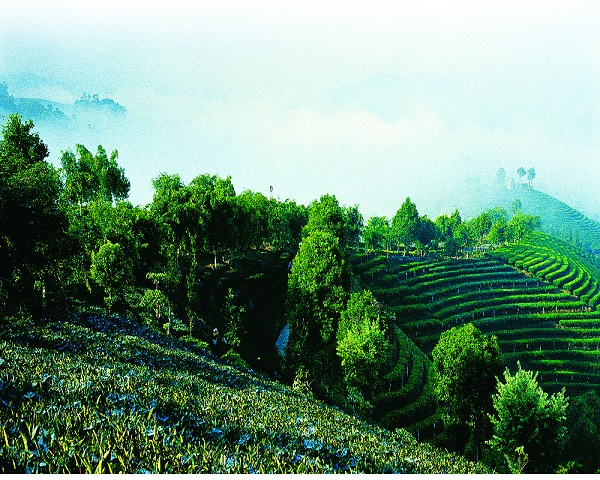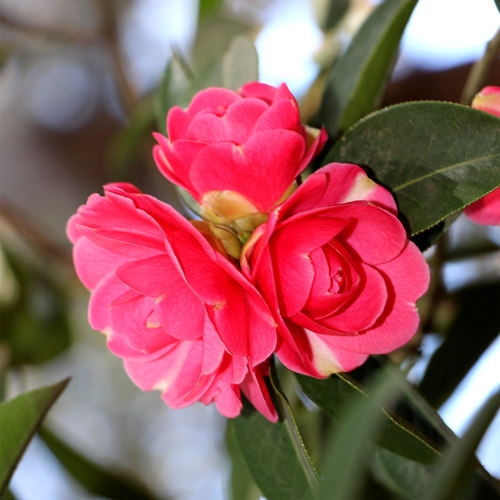
Unveiling magnificence of Lancang County
The First (Tonglu) International Rural B&B Development Forum of China was conducted in Tonglu County of Hangzhou City in Zhejiang Province. When appraising and electing the title of “China Rural B&B Development County”, the result revealed that Lancang Lahu Autonomous County was awarded “China Rural B&B Development Demonstration County”.
Yi Maoping who acts as the deputy secretary of the Party committee of Lancang County and general leader of the assistance team of new rural construction said that Lancang embraces favorable natural resources and cultural environment to develop rural tourism. A large number of lodges and courier stations are to be developed. At the next stage, Lancang county, with the help of local housing department, development and reform department, financial department and others, will continue to make a plan according to professional plan and opinions of older generation, so as to conserve traditional architecture in the development of historic village. Upholding the principle of inheritance and innovation, we persist in reasonable development.
What advantages possessed by Lancang County to obtain preferences and supports of experts and netizens? Let’s take a look.
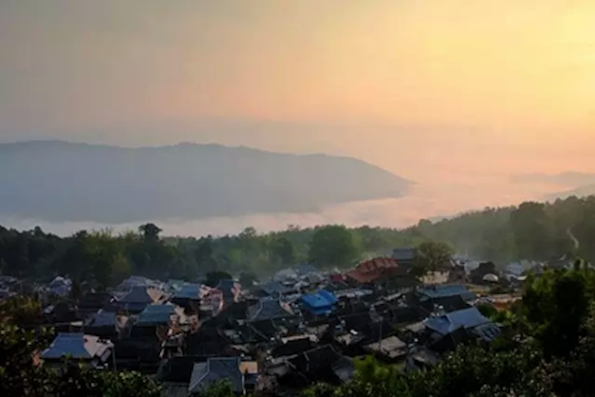
Being adjacent to Burma, Lancang county in Pu’er city is home to such minorities as Lahu, Va, Hani, Yi, Dai, Blang, Hui and Jingpo. Of this, Lahu has population of 215,000, accounting for one half and one third of national and global population respectively. Lancang is only one Lahu autonomous county across the country.
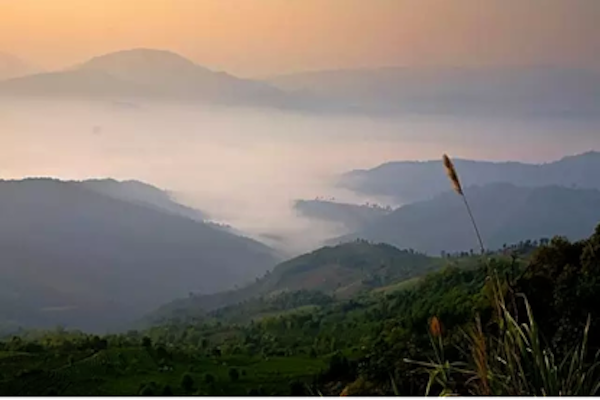
Surrounded by dense forest and magnificent mountains, Lancang boasts of not only resourceful human and natural landscape but also birthplace of global tea history. Renowned tourist attractions in Lancang country contain Nuogan ancient stockaded village of Huimin township, ancient tea park with thousands of years of history, Christian church of Nuofu township and others.
Nuogan ancient stockaded village of Huimin township
Nuogan ancient stockaded village of Huimin township is 74km and 29km away from the country and township government respectively. Culture and primitive historic village of Dai ethnic group are preserved properly. Regardless of unique residence and traditional custom of Dai minority, this is an ideal place to experience original culture and folk custom of Dai minority.
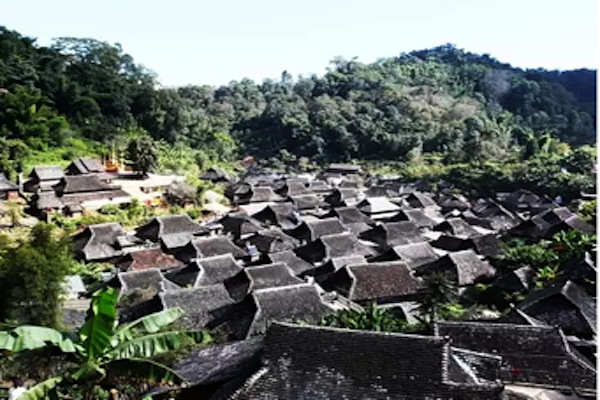
Embraced by mountain and water, the stockaded village is in a picturesque setting. Due to 18,000 negative oxygen ions per cubic centimeter contained in air, the village is renowned as “longevity village”, which brings forth an idea to construct a tourist and sightseeing village centering on longevity and water culture.
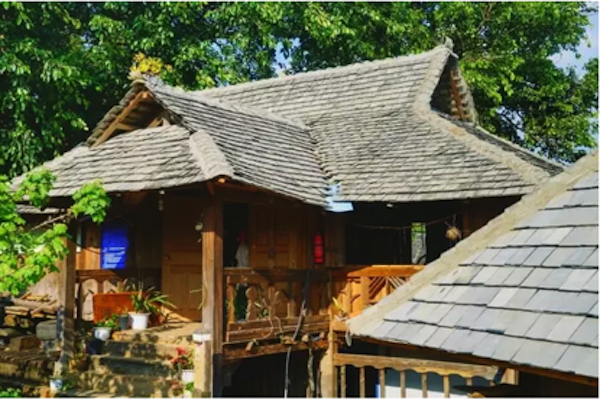
Ancient tea park with thousands of years of history
Located at Jingmai village and Mangjing village of Hani township of Huimin in Lancang county, Jingmai Mangjing Tea Park is 72km away from the county. With total area of 28,000 mu, the park has complete area picking up tea leaf over 10,000mu. Annual output of fresh tea leaf is over 800 tons, which is sufficient to make dried tea leaf more than 200 tons.
 This is now the largest artificial cultivation with the most complete facility, longest history and largest area throughout the world. It is hailed as “Museum of Tea Natural History” by domestic and foreign experts. Being birthplace of tea planting pattern under natural forest, scale production and industrialization of tea and source of world tea culture, its historical culture and humanity are so unique that it has become an important window to demonstrate development of tea industry and tourism of tea culture in Pu’er city.
This is now the largest artificial cultivation with the most complete facility, longest history and largest area throughout the world. It is hailed as “Museum of Tea Natural History” by domestic and foreign experts. Being birthplace of tea planting pattern under natural forest, scale production and industrialization of tea and source of world tea culture, its historical culture and humanity are so unique that it has become an important window to demonstrate development of tea industry and tourism of tea culture in Pu’er city.
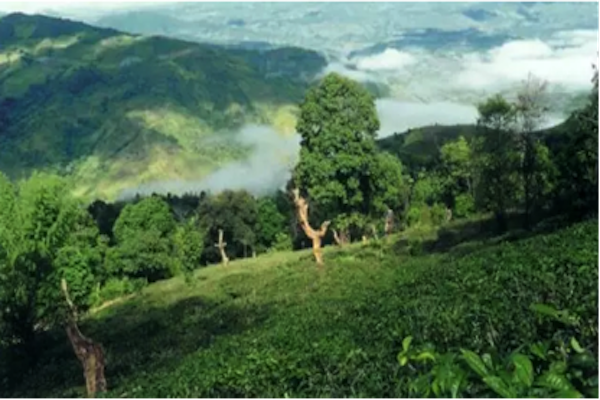
Christian church of Nuofu township

Nuofu church is located at the northwest, with 300m away from the government of Nuofu township in Lancang county. As church of the U.S. Baptists, it was established in 1922. Following the architectural style of Lahu minority, this church is a pile dwelling-based corridor and follows decorations of European and American style. With total covered area of 506.6sq.m., the layout of church is a timber frame of two crosses in vertical and horizontal direction. And the roof is covered with hanging tiles. It consists of small church, Lahu’s language classroom and retiring room of pastor.
Wengji Village of Huimin Town
Wengji and its surroundings are also home to Dai and Hani minorities. Special geographical location and local culture set off its distinctive and pure folk customs along with borderland. Both dancing and singing are their favorite activities. Bulang ethnic group is good at singing and dancing. Their traditional musical instrument—“bracket musical instrument” (its shape is like leg of cow). Singing and dancing are necessary activities when festival and weeding is conducted.
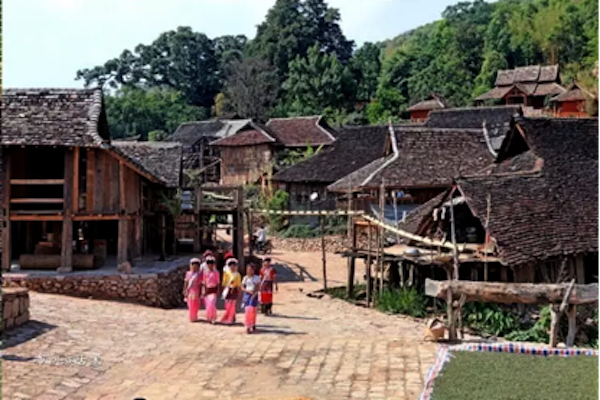
In a pictur
